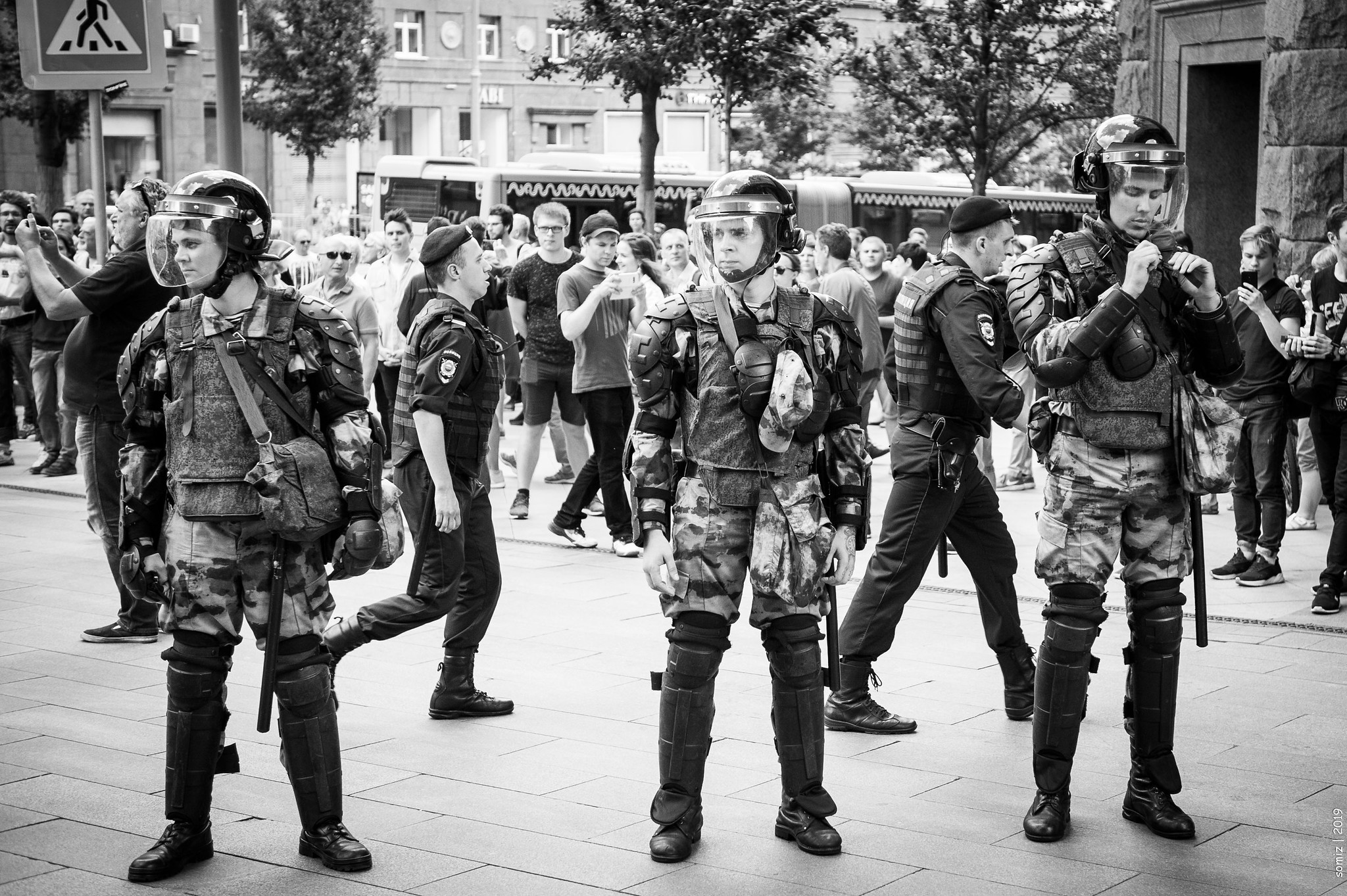For the past three weekends, central Moscow has resembled more of a warzone than a quickly developing modern metropolis. Tens of thousands of people have been peacefully protesting in the street against the government’s decision to prevent independent candidates from standing in the September local elections.
But it’s not just about the local elections, which usually attract little attention in Russia. Protestors and journalists say it’s about challenging the police brutality, corruption, a regime that refuses to tolerate any form of dissidence, and public that has long turned politically apathetic eye to an increasingly autocratic government.
What happened?
Saturday saw nearly 50,000 people attend the demonstration in Moscow, making it the largest opposition rally since 2013 following Vladimir Putin’s third inauguration to the Presidency, according to the White Counter group, an NGO that counts participants at rallies. “Dopuskai!” (“let them through”), chanted protestors, calling for independent candidates to be allowed to appear in Moscow’s municipal elections.
Police have responded with unprecedented repression. Scores of masked riot police outnumbering the protesters have beaten them with rubber batons. They picked some demonstrators from the crowd and viciously dragged them to vans. Troops in body armour were also seen in downtown Moscow.
229 people were arrested at last Saturday’s demonstration in Moscow and 81 at another rally in St Petersburg, reported OVD-Info, a monitoring body. Since the protests began on 27 July, police have arrested more than 1,000 people, and many of the candidates banned from standing in the 8 September election have also been detained. Opposition leader Alexei Navalny, a virulent critic of Putin, was jailed for 30 days on 25 July after calling for the unsanctioned demonstration. He’s not a candidate in this year’s local elections, but he stood in Moscow’s mayoral elections in 2013 and won 27% of the vote in a result he disputed.
It’s the biggest crackdown in years and shows no signs of petering out. Officials continue to insist the protests are a “threat” to public order, as opposed to acknowledging the protestors’ wide ranging concerns. Moscow’s Mayor, Sergei Sobyanin, has called the demonstration a “security threat”, and promised to maintain public order.
What are the protests about?
The elections are “not really the issue,” wrote Sergei Radchenko, a Russian historian, who protested on Saturday. It’s about the regime opening up more generally. He added that the independents who put themselves forward as candidates were “testing the limits of the regime’s flexibility” and “if the regime opened up — just a little — one could then hope for the gradual widening of the sphere of political contestation.”
Yuri Dud, a sports journalist and Russia’s most famous YouTuber with more than 5.7 million followers, posted his reasons for joining Saturday’s demonstration and calls on his followers to attend. He wrote: “Young people in Russia have been uninterested in elections, protests, injustice, political prisoners”.
He said he’s not political but he believes in “honest earnings” and that “our inertness” has led to a continuation of “Soviet political life”, and “the fact that any political competition is destroyed”.
Washington DC based think tank, Freedom House, wrote “With loyalist security forces, a subservient judiciary, a controlled media environment, and a legislature consisting of a ruling party and pliable opposition factions, the Kremlin is able to manipulate elections and suppress genuine dissent.”
“People are sick of seeing the same repression. Nothing is changing, it’s only getting worse. The ruling elite have crossed all possible lines,” says Nikolai, a 22 year old student from Moscow.
In recent years, Russia has introduced a series of laws punishing protestors. Since 2014, anyone caught in an unsanctioned protest more than once in a six month period risks being fined anywhere between 600,000 to 1 million rubles ($17,124 to $28,540), or sent to forced labour or prison for up to five years.
Media freedom has also been sharply diminished. Vague laws on extremism give the authorities discretion to crack down on any speech, organisation, or independent activity. “The government controls, directly or through state-owned companies and friendly business magnates, all of the national television networks and many radio and print outlets, as well as most of the media advertising market,” wrote Freedom House. A small handful of independent outlets still operate, but most of them are headquartered abroad.
Attacks, arrests, and threats against journalists are common. In April 2018, an investigative correspondent for the independent news website Novy Den (“New Day”), Maksim Borodin, died after falling from the balcony of his fifth-floor apartment in the city of Yekaterinburg under suspicious circumstances.
The Kremlin’s response to the latest protests has been designed to dissuade people from taking part. Clearly, it’s not working. There are only so many people police can arrest before politicians have to start listening to the peaceful protestors, who they dub a “security threat”.
Nikolai said “the fact that so many people went to the streets is great, but the government’s reactions is a tragedy.”
Photo: Evganiy Isaev

